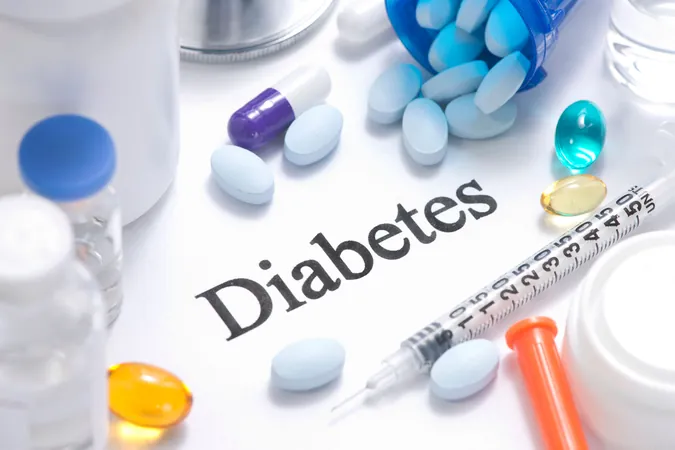
Diabetes and Mental Health: The Hidden Connection and Breakthroughs in Insulin Therapy
2024-11-28
Author: Siti
Recent research has unveiled a concerning link between the severity of depression and an increased risk of developing diabetes. According to a study published in *Scientific Reports*, there is a positive correlation between the intensity of depressive symptoms and various glycemic and metabolic markers. The findings underscore the need for healthcare professionals to monitor diabetes-related health parameters more closely in patients grappling with depression. This connection highlights not only the importance of mental health in overall wellness but also opens the door for holistic treatment strategies that address both physical and psychological conditions.
In a related development, Insulin Icodec has emerged as a new player in the diabetes management realm. Pharmacists are urged to familiarize themselves with this innovative therapy that differs significantly from traditional daily basal insulins. According to insights from Jennifer Goldman, PharmD, experts are optimistic about whether the FDA's evaluation may influence patient access to this potentially transformative treatment. The dialogue surrounding insulin Icodec positions it as an essential topic for pharmacists aiming to improve patient care.
Moreover, a pharmacist-led approach to Continuous Glucose Monitoring (CGM) is showing promising results. A recent study published in the *Journal of the American Pharmacists Association* suggests that incorporating pharmacists into the management of CGM workflows can lead to significantly better diabetes outcomes, indicating a growing recognition of the pharmacist's role within healthcare teams.
At the American Heart Association’s 2024 Scientific Sessions, held from November 16 to 18 in Chicago, groundbreaking research was presented on various diabetes treatments. For example, the SGLT inhibitor sotagliflozin demonstrated that its effects on systolic blood pressure remained beneficial for Type 2 diabetes patients, regardless of kidney function, suggesting it could be a viable treatment option for a broader range of patients.
Additionally, research focused on empagliflozin underscored its potential in improving cardiovascular outcomes among patients with both Type 2 diabetes (T2D) and cardiovascular disease. This dual benefit positions it as a critical medication for those facing multiple health challenges simultaneously.
Significantly, data revealed that eating problems and diabetes distress are intertwined, leading to poorer time-in-range for blood glucose levels. Findings indicated that targeted interventions could dramatically assist patients in achieving desired glycemic control.
Elsewhere at the conference, multiple research presentations delved into the use of SGLT-2 inhibitors among T2D patients with cardiovascular complications, investigating their impacts on cardiorenal outcomes and mortality risks.
As we continue to unravel the intricate relationships between diabetes, mental health, and advanced therapies, it becomes increasingly clear that comprehensive, patient-centered approaches are crucial in managing these interconnected conditions. Stay informed and proactive about your health; new advancements are always on the horizon in diabetes care.



 Brasil (PT)
Brasil (PT)
 Canada (EN)
Canada (EN)
 Chile (ES)
Chile (ES)
 España (ES)
España (ES)
 France (FR)
France (FR)
 Hong Kong (EN)
Hong Kong (EN)
 Italia (IT)
Italia (IT)
 日本 (JA)
日本 (JA)
 Magyarország (HU)
Magyarország (HU)
 Norge (NO)
Norge (NO)
 Polska (PL)
Polska (PL)
 Schweiz (DE)
Schweiz (DE)
 Singapore (EN)
Singapore (EN)
 Sverige (SV)
Sverige (SV)
 Suomi (FI)
Suomi (FI)
 Türkiye (TR)
Türkiye (TR)